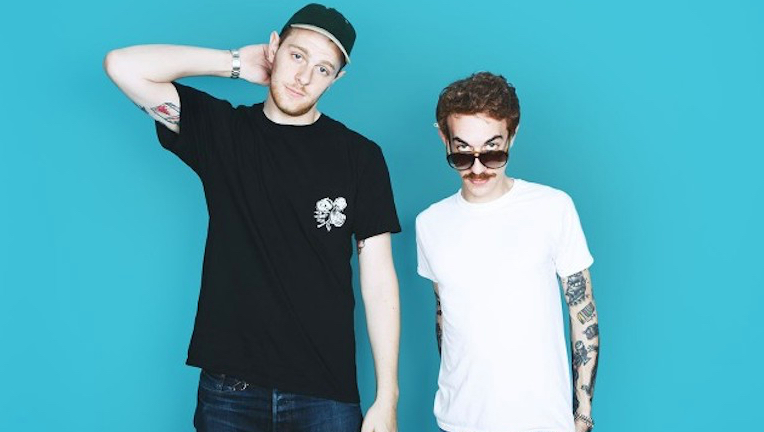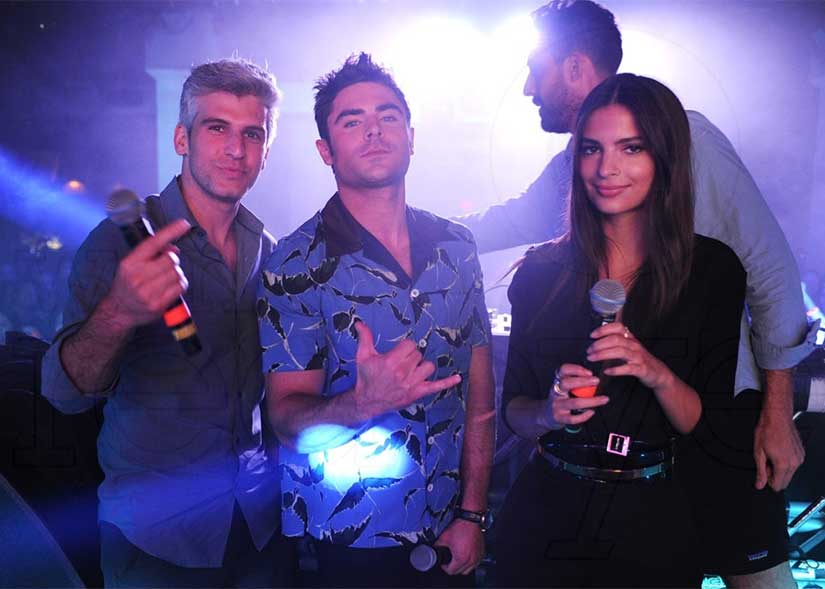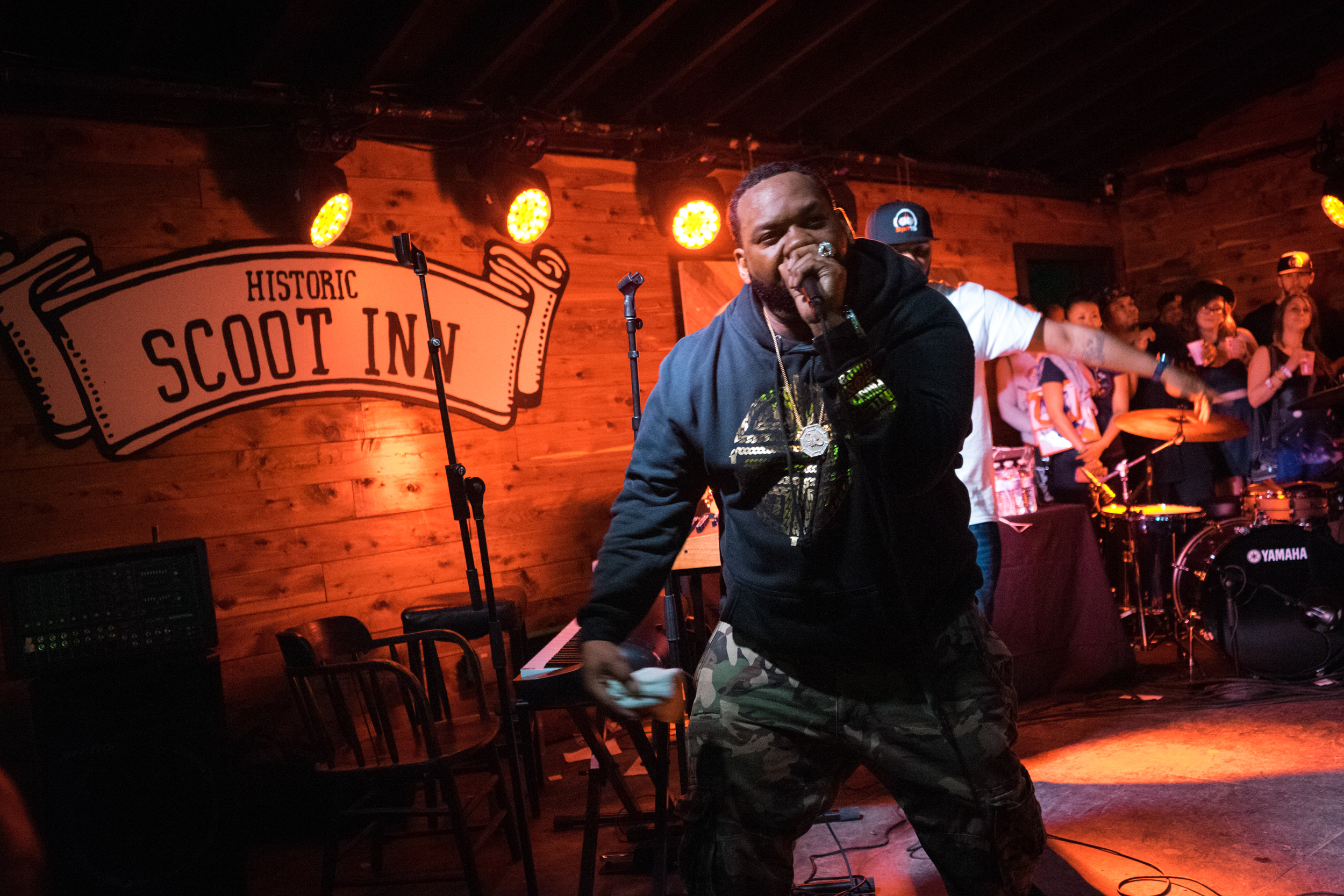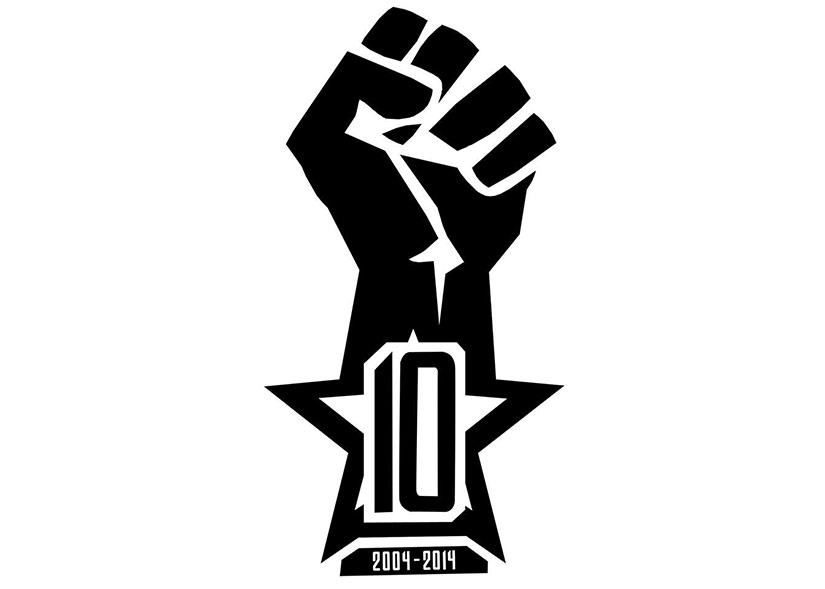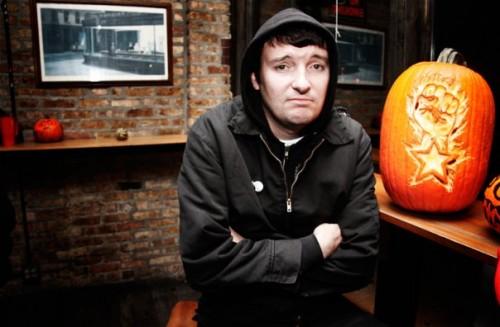Closed Sessions Photographers Past + Present Share Their Favorite CS Photos
On September 29th, Closed Sessions hosted an intimate photo gallery chronicling the indie label's movement from 2012-2017. The private gallery was hosted at Soho House Chicago, and served as a soft launch before the exhibition makes its way to a public space in the coming months. Here, we highlight the 4 photographers at the center of the exhibit, Jack Olevitch, Cooper Fox, Jameel Bridgewater, and Andrew Zeiter.

Jack Olevitch:
Years Active with CS: 2015-present
First photo you took for Closed Sessions: Yes, it was an Alex Wiley single artwork called “Feast”. We went to Fatso’s last stand and got some fries and spelled out feast with them, then I wrote his name in ketchup and we took a photo. Wasn’t a good photo but it was the first for sure.
Most memorable CS photo or art: Spicy Caliente was my most memorable because I was told to “make the viewers eyes explode” or something along those lines. I gave myself no boundaries and allowed myself to really create whatever was going to burn your eyes.
What do you want people to know about you after seeing this exhibit?: I am actually more of an illustrator/artists than a graphic designer. I have my own personal art that I hope one day everyone can see and enjoy, but I am really happy to be working with CS and I am glad people get to come see this sect of work that I am equally proud of.

Cooper Fox:
Years Active with CS: 2016-present
First photo you took for Closed Sessions: The first photos I took for Closed Sessions was at Jamila Wood's sold out album release show at Double Door. I remember Nico Segal came out and I got a great shot of the both of them.
Most memorable CS photo or Art: To this day my favorite photo is still the one I did for Kwe and oC before they left for their Euro tour. It's the shot where Kweku is jumping over oC on his skateboard and from the angle I was at and lens I was using, it makes it look like he's super high in the air. We all went into that shoot knowing we wanted an epic shot and that's exactly what we did.
What do you want people to know about you after seeing this exhibit?: Closed Sessions gave me the platform and opportunities to do what I love and trusted me with ideas I wanted to execute. They've allowed me to use my camera as my ticket to travel around the country and for that I am always grateful. I have made life long friends at Closed Sessions, and because of that I've been able to make my best and most honest work to date.

Jameel Bridgewater

[Interview] D.R.A.M. - Reflects on success + Announces new album
Best known for his signature smile and upbeat personality, Shelley Massenburg Smith, known to his fans as D.R.A.M., is a fresh new face in hip-hop. His melodies and playful lyrics are perfectly crafted into a style that makes the Hampton rapper and singer stand out.
D.R.A.M.’s melodies transition into soulful moments that can be seen in his music, interviews, and featured performances. After some time spent listening to D.R.A.M. it’s hard to debate his playful, uplifting personality and it’s effect on his music.
His first studio release D.R.A.M.’s Big Baby D.R.A.M., debuted at number nineteen on the Billboard charts. It’s single “Broccoli” which features Lil Yachty received a Grammy nomination for Best Rap/Song Performance.
Along with the critical praise for his debut album, much speculation surrounded D.R.A.M. and his first released debut “Cha Cha” which came from his EP #1Epic. Playing defense, D.R.A.M. found his efforts in making his case that Drake’s “Hotline Bling” was a definite imitation.
With all focus on the potential beef, D.R.A.M never really got his fair praise for Big Baby D.R.A.M. In the days of modern hip-hop taking a different turn, it had many guessing D.R.A.M.’s legitimacy in providing continuous hit records.
D.R.A.M., which stands for Does Real Ass Music, has started his career with hit records like “Broccoli”, “Cash Machine”, and “WiFi”. With support from Young Thug, Lil Yachty, and Erykah Badu. D.R.A.M.’s debut album legitimized his status as one of the best new artists.
We spoke to D.R.A.M. about his view on life and music and his personal take on criticism on his work.
RH: You seem to keep business and yourself life well balanced. Keeping level headed, how does your personality affect your music?
It reflects me. The music has a lot to do with me in general I mean I just overall would be the likable good vibe spreading guy than the off putting I’m too cool for you guy. You can be cool without being so anti-everything.
I like the fact that it strikes a good tune in people because that’s what I aim to do. If I feel good about something when I make and put it out in hoping that the people that are listening to it feel the jam good vibe. It’s just me wanting to pass a good vibe and to be a likable person rather than a dick.
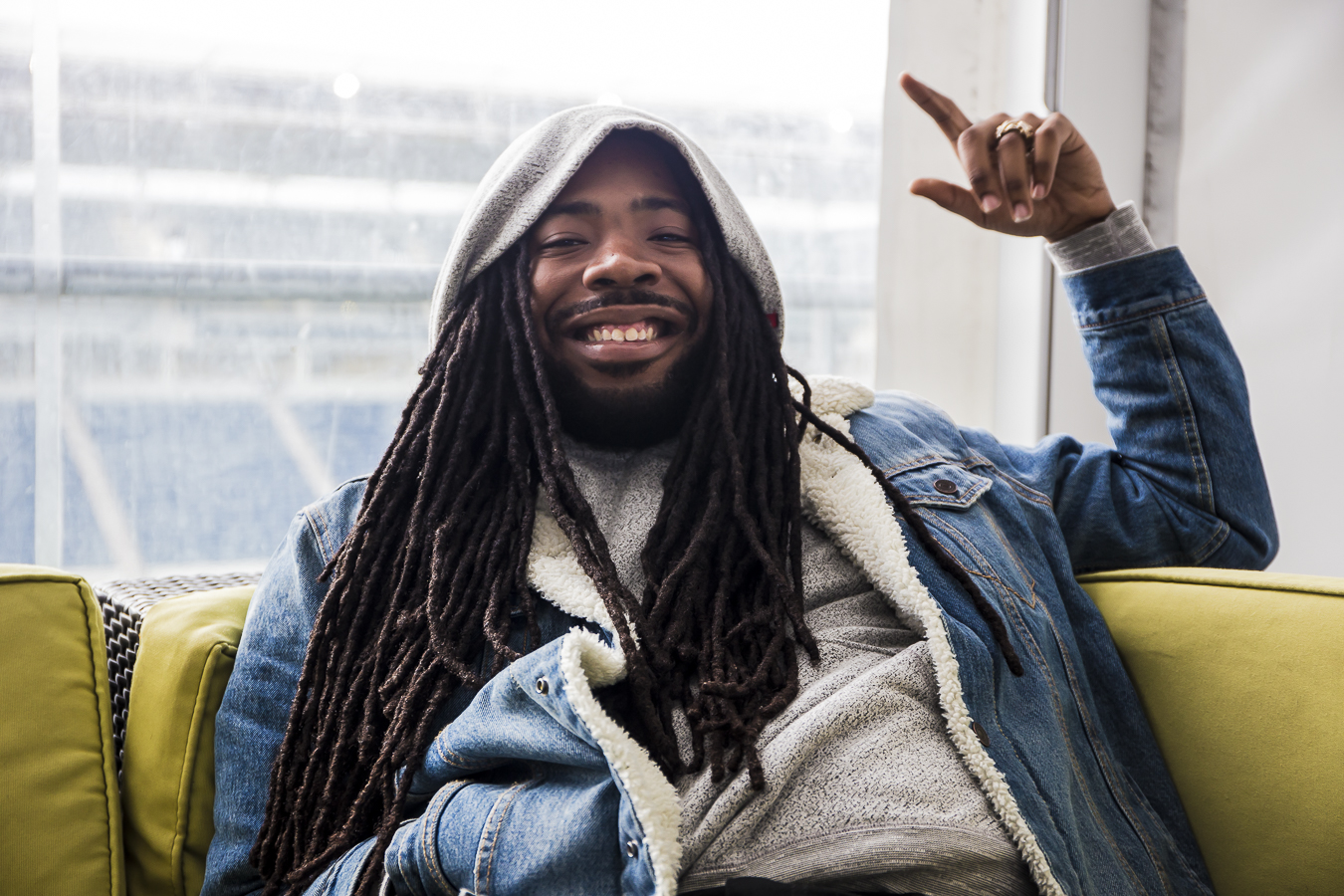
In your short career, you’ve exploded with success. Can you think back to one moment that was momentous in the very earlier blessings in your career?
Back in 2014, we had drop #1Epic mixtape we had the “Cha Cha” record attached to it. We literally just put it out there not knowing how it was going to go but we knew it was going to go.
That was our first blessing. My guy Jacob from Pigeon and Planes, he found my shit through somebody randomly reposted on Soundcloud and saw that called me and raved about my shit.
Six days into the project we didn’t know what the fuck was happening. (laughs) I got my lawyer and management and many other things steamed from Pigeons and Planes push. That was my first blessing. Never will forget that. That was the spark.
A spark that grew into D.R.A.M. today? While also sparking with others?
Yeah, even me and Lil Yachty linking up to do the “Broccoli” record was a blessing because it was all out of timing. I saw he was in L.A. and I hit him up, he came through. I was at a point where the up grind was about to start again and we were just preparing for it working on our shit. Getting back on the grid, and then Yachty being where he is with his fan base at that point. It was the perfect combination moment, everything just fit.
We legit thought it was going to be something on Soundcloud and get the internet and Twitter lit. Which then became one of the biggest songs in the country.
D.R.A.M at Freaky Deaky - 2016
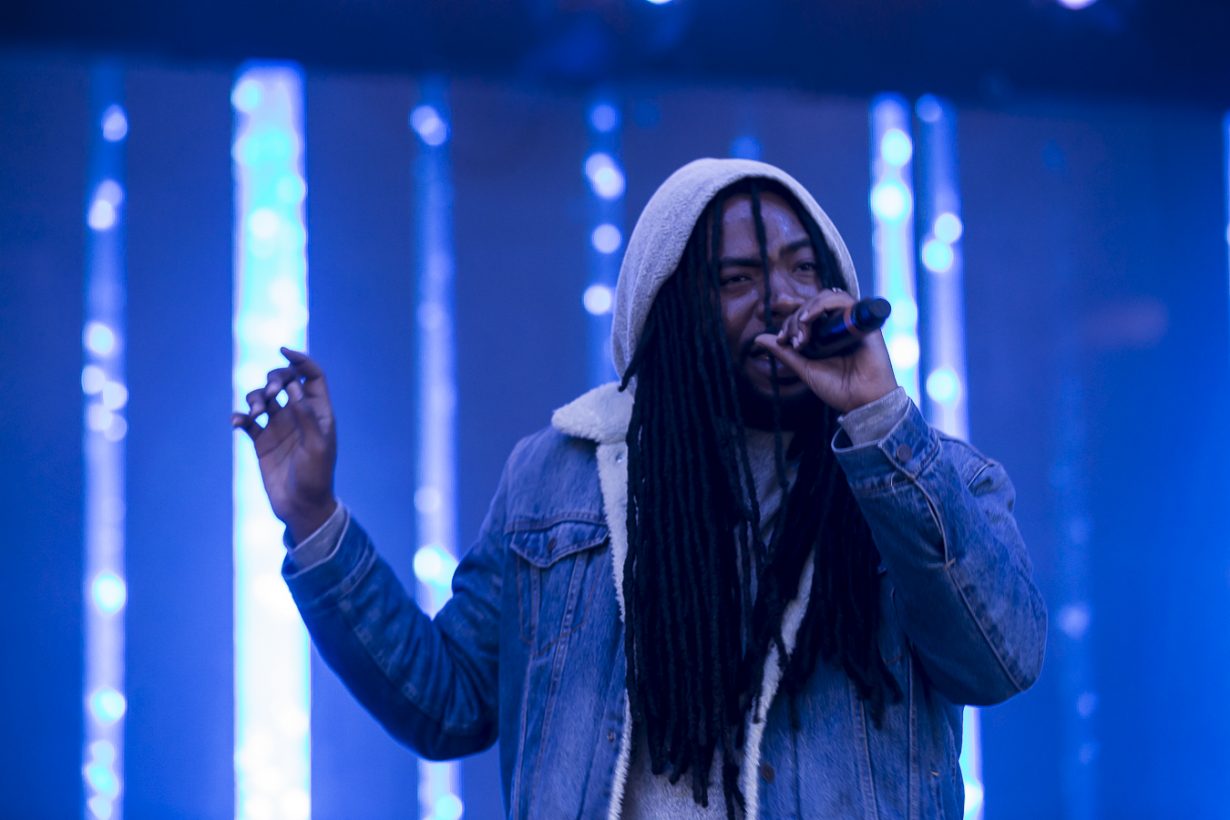
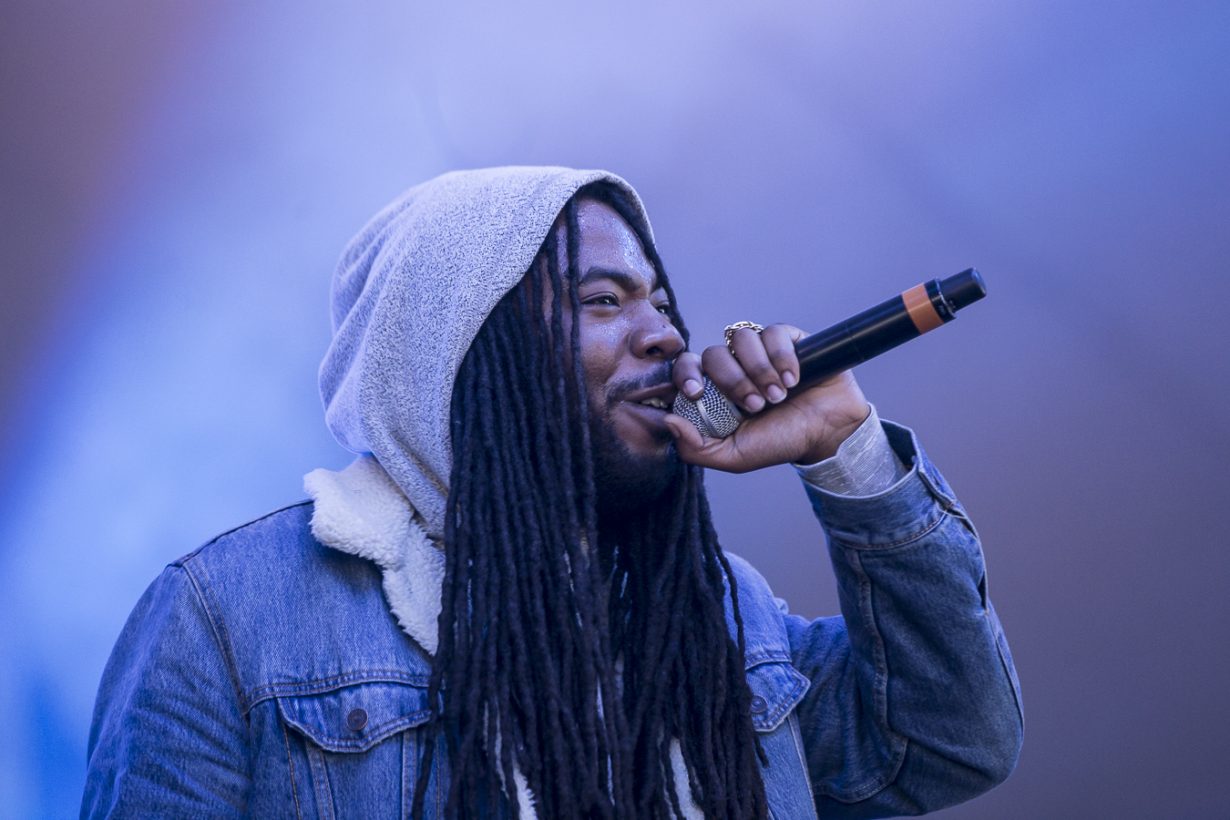
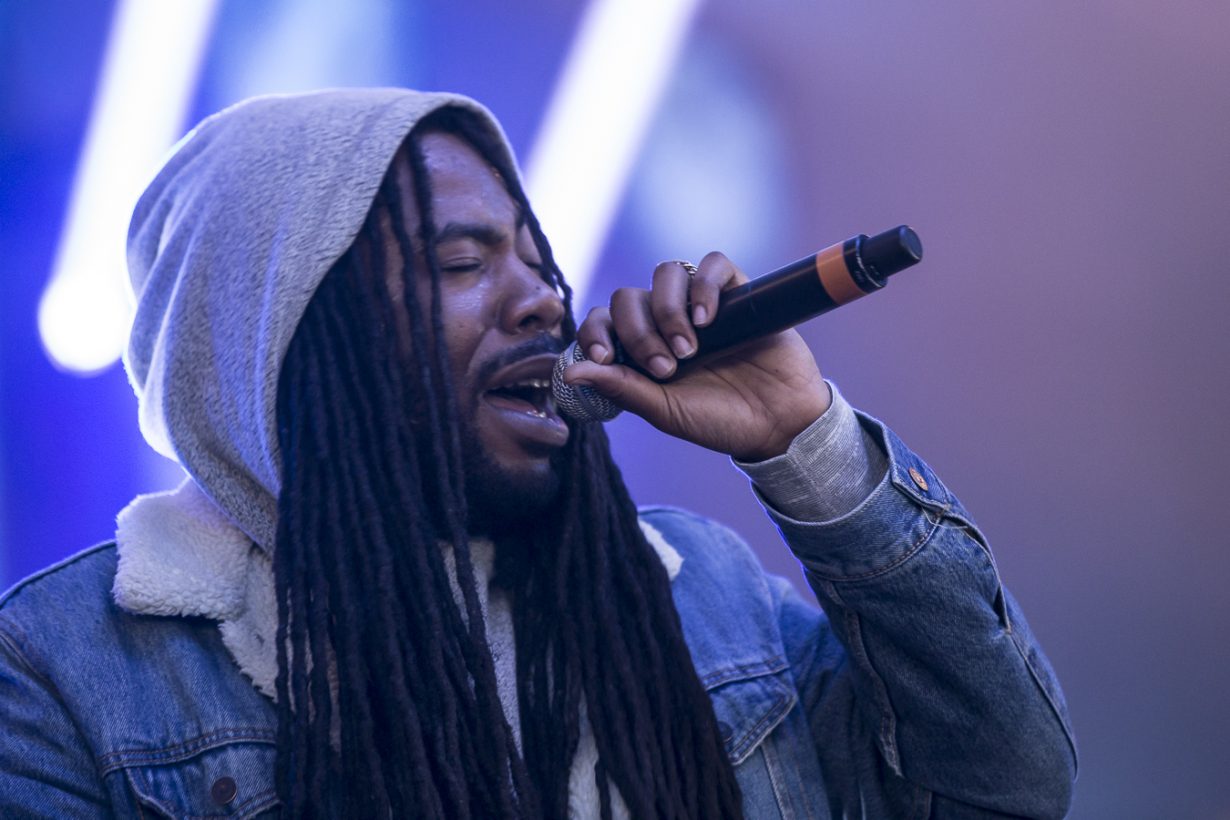
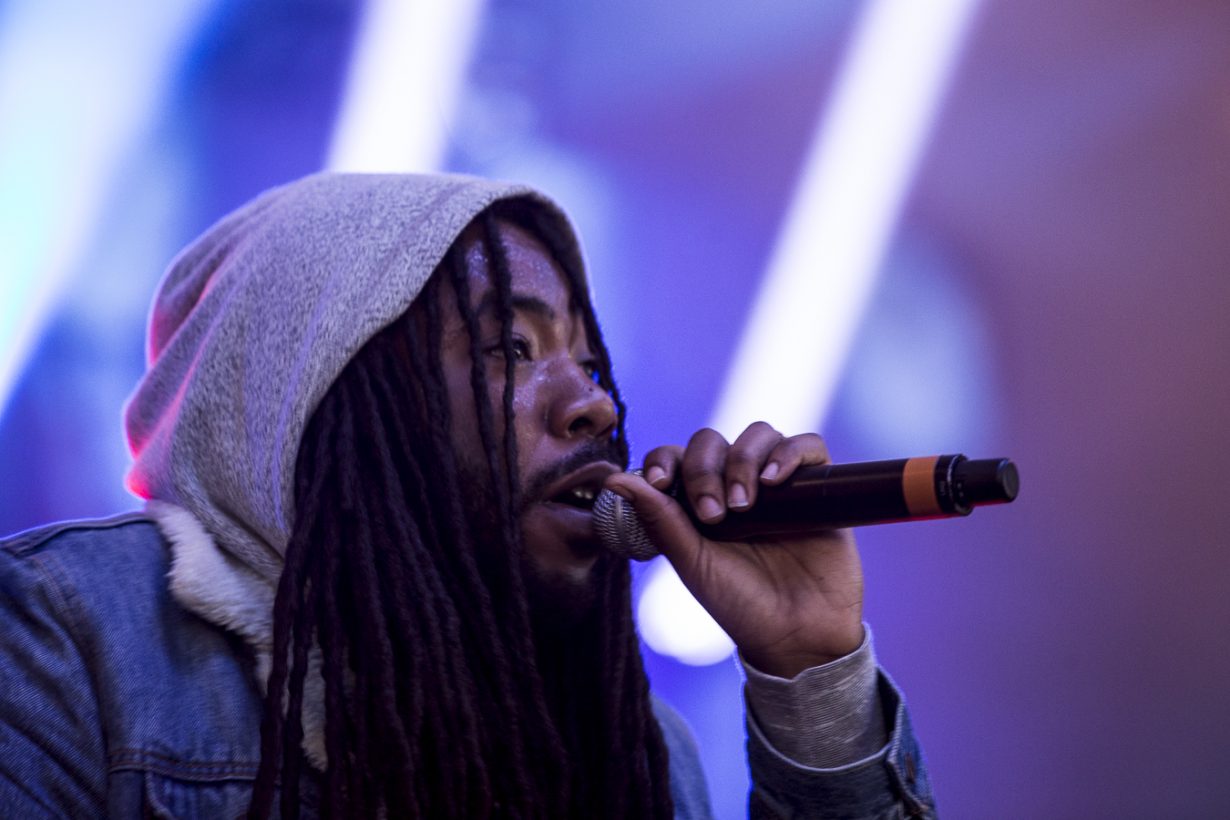
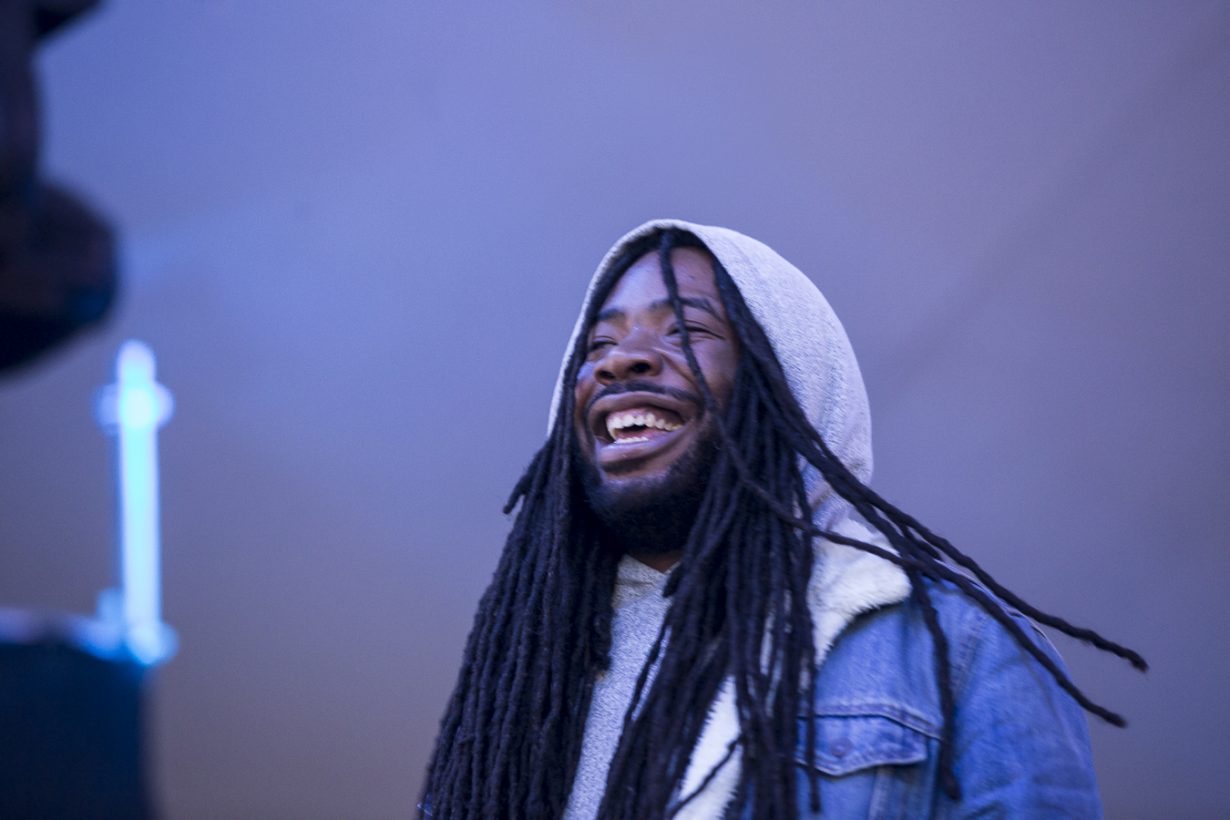
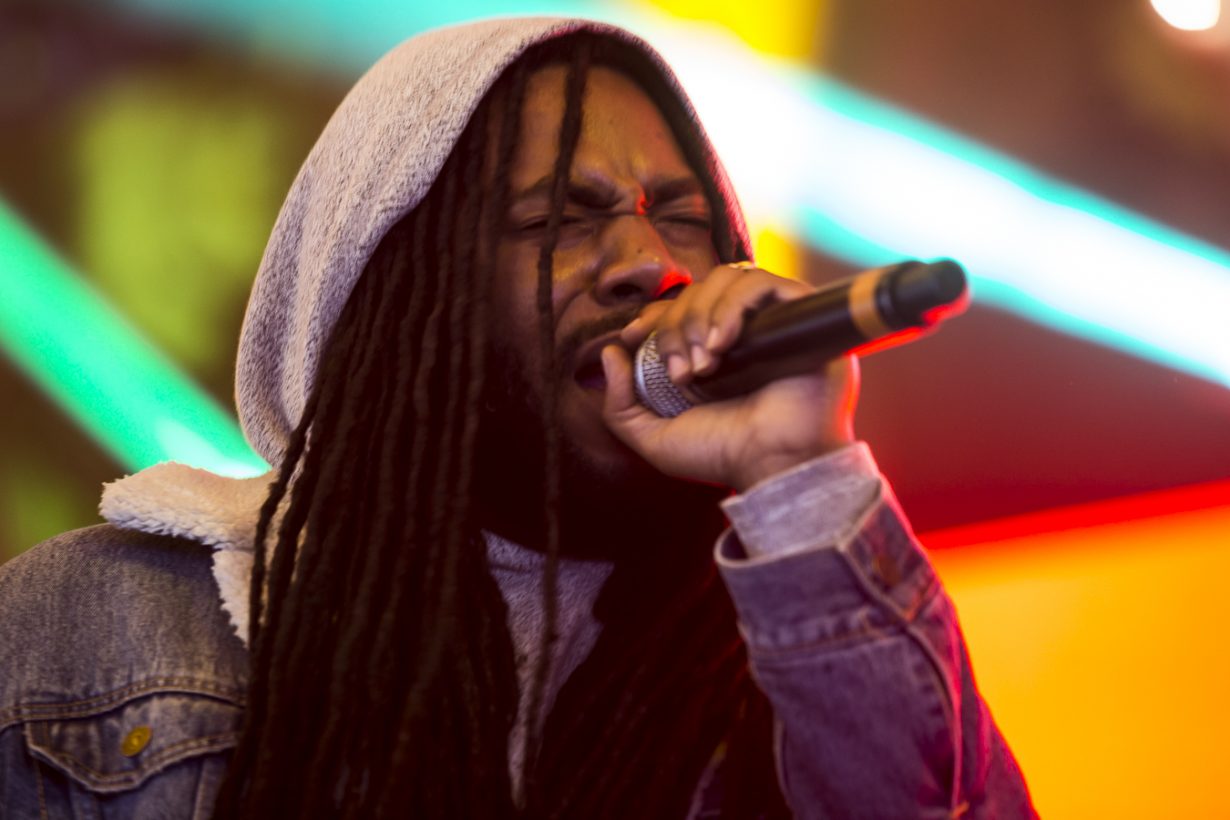
With the release of “Big Baby D.R.A.M. “you were able to put out a body of work that silenced those who questioned your legitimacy after speculation from your earlier work. How did it feel putting those talks to rest? What were you able to do more of. What were you able to focus on?
I’ve always been making music like this. From many different angles and different influences but we do know what is the forefront sound what’s going to carry the torch. What’s popular when it comes to D.R.A.M. and that’s trappy go lucky. We never sit in and try to make that moment it just comes about.
Everything else is just all we’ve been doing if you listen to “#1Epic” in it’s entirely, “Live at the Milk Jam Room”, and “Big Baby D.R.A.M” in it’s entirely it’s continuing that source. I got to a point where I’m comfortable with the scale of my music. I wanted to make sure that these people knew that I’m for real. That’s why the three most popular songs are right there in the middle.
If you all you want to fuck with is that happy go lucky sound of D.R.A.M., I’d got to accept that because you still come out to see me. I put that project out there for the people that I already knew what I was about but I also did it for me.
After releasing “Big Baby D.R.A.M.”, what’s going on in your way of thinking? What’s the feeling of putting away all the naysayers of D.R.A.M.? After making such a bold entrance into the hip-hop world.
There’s not any pressure. I’ll tell you this right now. We're almost halfway done with the next album. This is (D.R.A.M.) not a flop, you feel me. So when we put out the project (Big Baby D.R.A.M.) I feel really good about it as a whole but it’s not even half my journey. Like the great Gucci Mane once said, “This isn’t even half my journey.”
I feel relieved now that the first album is out of the way. There’s so much crazy shit going on and I’m quite the opinionated person but what I want to do is keep that shit out of it.
I’m never going to try to push my rhetoric down your throat. In the mindset of all this I’m like “Hey let’s go through all of this.” let’s put on 4 minutes of blessing right quick because, at the end of it, it might speak out ideas that needed that good energy to spark it.
D.R.A.M will be in Chicago on Fri. Jan 27 at The Metro.
[iframe id="https://www.youtube.com/embed/K44j-sb1SRY"]
Interview: Chuckie on electric dance music
Known to millions of fans as the master of Dirty Dutch, DJ and producer Clyde Narain, better known as Chuckie, has been the face of the electronic music subgenre.
One of the earliest and most notable producers in electronic music, Chuckie has laid out groundwork for many artists like Fedde le Grand, Afrojack and Hardwell.
In Chuckie’s long career he’s worked with a who’s who list of notable EDM artists as well as many other genre musicians. Chuckie first began his career before the high rise in popularity in EDM. As the popularity of electronic music skyrocketed, Chuckie's fame stayed the same because he was already an icon. Like the cultural movement behind Dirty Dutch, his work combines all the different elements in EDM. Chuckie is a jack of all trades; his Dirty Dutch themed music festival, record label, and continuing collaborations cement Chuckie’s future legacy.
We catch up with the Dirty Dutch legend after his set at the fifth annual Spring Awakening Music Festival.
I noticed that before your set you were waiting patiently on the side of the stage. How do you prepare yourself in that time?
When I DJ I just don’t go on stage and play 12 of my songs in an hour set. I like to play all kinds of songs to get the crowd going. To me it’s important to see the DJ that played before me to make sure I don’t play the same thing. I like seeing the crowd and how they respond to the music.
Since EDM's main stream growth have you ever needed to take a step back?
It’s hard because of traveling. At all times you try to balance. There’s not really a point where I haven’t said I need to slow it down because I’ve really tried to balance it out as much as I could.
Of course sometimes I really want to go home but it’s hard because of the traveling. You don’t sit in the studio anymore.
You were one of the first international DJ’s and have been traveling around the world for quite some time. When, if ever, have you had to put the brakes?
I started going international in 2008, so I would say in 2011 is when it hit me the hardest. I was like fuck, time is flying by with all the traveling and touring. Eventually I was good, next I decided to move to Aruba but at the end of my day I think I’ve found my balance.
Even now finding the right balance with a diet. When you’re on tour man all the party and drinking can’t be healthy. You don’t pay attention to your health. Right now I’ve seen a lot of guys fall into accidents. Especially in the past three years. A lot of guys from the scene I wouldn’t like to mention any names but a lot people already know. Which is crazy. That’s not going to control my life.
You’ve welcomed other types of music and combined them into your Dirty Dutch style. DJ’s are now considered as “sellouts” for branching off from their traditional sound. What’s your take on switching it up with different styles of music?
My whole idea behind that was yeah, house music is just house music, but I wanted to add some fun elements to balance it all out. I just wanted to have fun with it.
When you’re trying to find your sound or style you’re always going to get criticized for it. Even when I started adding elements to my music I was criticized.
It’s not encouraging. I see it in the hard style scene for example. In Harlem the hard style scene, they have hard core fans. They don’t want anything to change. Matter of a fact all the songs had the same break and same timing. Everything is the same. All the structures are the same. How boring is that?
I don’t know. Music is music, sometimes you might want to add some elements to a song. My way of thinking it is if you’re not going to do it I’m going to do. I’m going to make an electric track with a 128 BPM with hard style. With me personally I don’t care. I’m on a mission. If you’re on a mission and you know exactly what your doing don’t even mind the criticism.
You’ve accomplished so much in your career. What’s next?
I’m going to continue to do more and more in music. Whatever I feel like now. I don’t even feel like dropping EDM tracks. I don’t want to say it’s boring or anything it’s just the same old things. If you want to have a top charting track you have to have something that sounds like what’s popular now.
It’s also important to have fun with it because to me at this point it’s starting to get more of a joke. It’s not even about the music anymore. Now a days you have to pop champagne, you got to give away t-shirts, you got to have a hype man, you got to throw out cakes. To me, I’m taking things way more back to basics but that works for me.

Chuckie, after our interview at Spring Awakening Music Festival.
You’re involved with your music, label, and production. Why is this important to you when, at this point in your career, you can just release music, sit back and collect checks?
I’m kind of a purist. This is where I draw the line. We did all the mosh pits, sit downs, and all the gimmicks. So then what’s next? Are you going to bring a clown up on stage? I’m just on of those guys that wants to take it back to the basics. So less CO2, less streamers, and special effects I just want people to appreciated the music because if we don’t do it were slowly killing the scene.
These kids go out to raves and get bored 30 seconds into the drop and are already asking, “Okay what’s next?”. For example, if you release a song today next week people are going to ask when you’re going to release a new song. It’s going into that culture. I don’t want that I want to take it to basics.
Especially in Djing, at a festival we have a line of guys performing doing gimmicks and then the next guy coming up is playing house music but doesn’t use the special effects. At the end of the day that guy is going to sound boring. It’s crazy right now. There’s too much stuff going on right now.
Interview: Borgore gives insight on his musical beginnings
Israeli Asaf Borger is better known to his millions of devoted fans as the dubstep producer and DJ Borgore. Transcending from his first found success Borgore has branched out to other forms of electronic music like drum and bass and house music.
He has also seen recent success in his hip-hop endeavors. His newest video single 100s showcases Borgore’s rap skills. Borgore has been associated in the past with collaborations with heavy hitters like G-Eazy, Miley Cyrus, and Diplo.
Electronic music and all things considered EDM have been looked at under a microscope in recent years for its fanatic and massive sellout crowds. The stereotypical never ending party antics, overly suggested drug usage, and the sexually aggressive atmosphere still haunts the growing music community.
Borgore is no stranger to controversy. The producer/DJ has been criticized for his suggestive and misogynist lyrics and his on stage antics. His persona is one of the loudest in your face in electronic music today. His unapologetic actions and records are a continuing sign of holding nothing back when it comes to his world of DJing.
A music prodigy growing up, Borgore had a not so average up bringing. After graduating at the age of 18 years-old he spent three years in the Israel’s national army. Borgore also has his own label Buygore.
We sat down with EDM’s bad boy at the fifth annual Spring Awakening Music Festival.
CM: You recently released the video for “100s." Not only do you showcase your rap skills but you also say “You don’t have to love, but I’m here making millions." What do you mean by that?
B: I’m a strange person in the EDM world. I don’t one hundred percent fit in, in a classical EDM way. That gets a lot of people mad. When people aren’t used to something they either love it or hate it. That’s a fact, you don’t have to love me but regardless I’m still doing pretty good.
From the Israeli army to producing music. How has that journey been coming from a place of uncertainty?
When I was in the army I was one hundred percent sure what I was going to do. I was in the army, my girlfriend broke up with me, I was miserable and was stuck with five hundred dudes getting shot at everyday.
That’s when I said to myself you know what I don’t want to be in this position. I want to be successful. I’m going to be successful.
I started trading stocks and did really well actually but that didn’t fulfill my life emotionally, so I want back to music. Music is something I’ve done my whole life. But you know what, if I wasn’t good at music I would do something else. I’d be a great lawyer or doctor. Fuck it, it’s all a matter of perspective. If you want to be great at something, then be great at it. Just work hard for it.

Your music has been attacked for what many suggest to be overly sexualized and misogynistic. How do you now reflect dealing with that and how many interrupted your music?
I don’t disrespect anyone. I don’t care what’s your gender or where you’re from as long as you’re a good person I respect you. If you come to my show and you want to show your tits if you’re a dude, chick, or trans (sexual) do it, I don’t care.
I’ll give you that option. You have the freedom to do whatever the fuck you want. How am I misogynist? You want me to tell them to stay at home and wear hijabs and stay in the kitchen all day?
When being criticized, the misunderstood culture of electronic music in being overly sexualized towards women is attached to your debate. How is it not only representing you but a specific culture of electronic music?
It feels natural. I’m going to do that for my whole life. For me art is theory. There’s so many questions I cannot answer. I don’t know what happens after death.
The world is fucking vague. The one thing I do know is the music makes me happy. This is what I’m going to do even if I’m not successful in making music, I’m still going to be making music.
Being involved and having a hand in every step the process with your music, from your label, production, to now rapping on "100s." Why is that important to you?
That’s the way it should be. If you’re a so called DJ, you better fucking know how to play some instruments. You better know how to produce. The whole idea of people becoming famous from other producer’s work is bullshit.
We are musicians - this is our job. First and foremost, we are all musicians you better know the notes in a C major scale, that’s basic! You got to know the basics.
Just bouncing back to "100s," how was it making the video for this light-hearted track?
It was amazing to shoot. We had a great time; I love the song. For years I was working with directors, some were great some weren’t. I was so happy to work with someone that I had so much fun with. All my friends were there together just fucking around. While on set I literally destroyed a golf cart for the music video. (laughs)
Borgore's "100s"
[youtube id="fJTuldpMwCg"]
[Video Interview] LOUDPVCK
[youtube id="5imuy9hZX4A"]
This post was originally posted on our affiliate site, Chicago Music.
LOUDPVCK is made up of two DJs/producers, Kenny Beats and Ryan Marks, who met in college while studying at Berklee College of Music and started producing music together. They have exploded all over the music with collaborations and remixes from Nervo, Skrillex, A-Trak, Dillon Francis... the list goes on. We spent the day doing some of their favorite things ahead of their recent Chicago show at The Mid. There's no doubt these guys are true music lovers, as well as "marijuana connoisseurs," as Kenny likes to put it. Be sure to check out their new EP, Botany, as well as their upcoming tour dates.
[youtube id="YJoyj6YsPFI"]
[Interview] Zac Efron, Max Joseph, Emily Ratajkowski, Them Jeans (We Are Your Friends)
Header via R.M.T. / WENN
While the current EDM scene has only been in mainstream prominence in recent years, it has more than its fair share of detractors and controversy, specifically focused on the wild partying, drugs, and the criticism that comes with any and all forms of music. However, writer/director Max Joseph attempts to offer an honest in-depth look at the EDM scene with his film, We Are Your Friends, using the scene and community as the setting for this coming of age film starring Zac Efron and Emily Ratajkowski.
During the press circuit for the film, I had the chance to partake in a roundtable interview alongside other Chicago-based journalists to discuss We Are Your Friends with Efron, Ratajkowski, Joseph, and DJ consultant Jason Stewart (AKA Them Jeans). Read along as we discuss EDM, the film, the actors' DJ names, and more!
[SXSW Interview] Raekwon
[youtube id="CyNi47D0DqQ"]
Video by Elijah Alvarado
During SXSW last month, we had the chance to catch up with RH homie Raekwon The Chef. Rae talked to us about his crowdfunding campaign for "The Purple Tape Files" a documentary based on the making of his debut album "Only Built 4 Cuban Linx." This year marks the 20th anniversary of the project that not only solidified Rae as a solo artist but one of the best MC in Hip-Hop. We also talked about the creative process for his new upcoming album Fly International Luxurious Art (F.I.L.A). He discusses collaborations on the project with A$AP Rocky, Rick Ross, and bringing in new producers to the fold. Check out the first part of the interview above and the second part below.
[youtube id="eoikBh_se0M"]
[Interview] Toby Jeg (Red Scare Industries Founder)
This year marked the 10th anniversary of Chicago's Riot Fest, but it's not the only Chicago punk rock establishment celebrating the decade mark in 2014. Red Scare Industries, one of the most popular and critically-acclaimed punk rock labels still in existence, has played host to an amazing catalog of punk bands, including The Falcon, Cobra Skulls, Teenage Bottlerocket, The Methadones, and more. To commemorate the label's 10th year, I had the chance to exchange emails with Toby Jeg, Red Scare founder and all-around awesome dude. Click along to read about his relationships with the bands, why he moved the label from San Francisco to Chicago, and what's coming up next for the label.
If you want to get involved with the festivities, you can make your way to the Northside for a trio of amazing punk shows. Friday at the Gman Tavern will feature acoustic sets from Nothington and Elway, a set from Dan Vapid, and some secret guests (tickets can be purchased here). Saturday is an all-day affair at the Metro with Reaganomics, The Brokedowns, Elway, Direct Hit!, The Holy Mess, Brendan Kelly and the Wandering Birds, Teenage Bottlerocket, The Sidekicks, Enemy You, Masked Intruder, The Methadones, The Lillingtons, and THE FALCON all performing. Trust me, the price is worth it for The Falcon's reunion set alone (tickets can be purchased here). The party returns to the Gman Tavern Sunday night for a special Brendan Kelly solo set, an acoustic Cobra Skulls set, and more (tickets can be purchased here).



